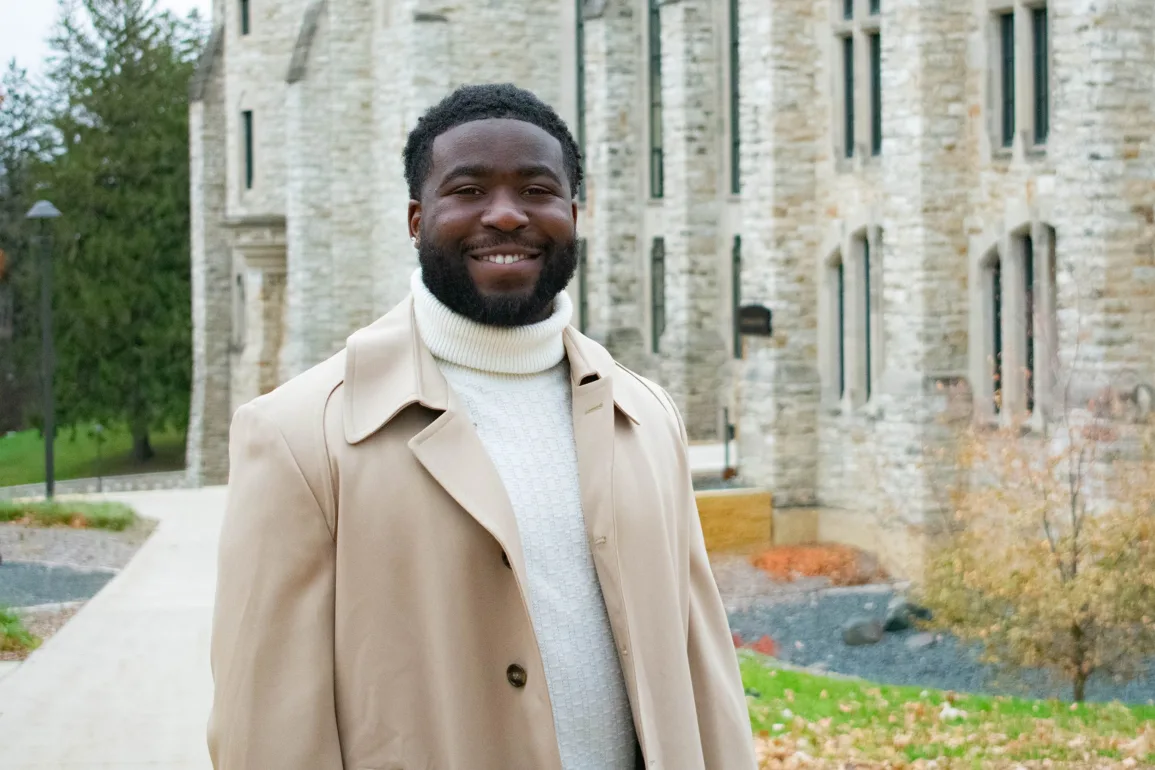The St. Olaf College Taylor Center for Equity and Inclusion has named Duane Bogne ’25, Aidan Lloyd ’24, Mazen Nour ’24, Lorenzo Riley-Combs ’24, and Ruhama Solomon ’24 as the 2023-24 recipients of the George Floyd Fellowship for Social Change.
The purpose of the fellowship is to support the advancement and development of the Black/African-American community in the United States whose populations experience the social, political, and economic barriers and factors that contextualize the killing of George Floyd by Minneapolis police on May 25, 2020.
Applicants for this fellowship are provided funding for a yearlong project that focuses on racial justice, social justice, and equity. Through the fellowship, applicants are given the resources and support to improve the experience of marginalized communities.
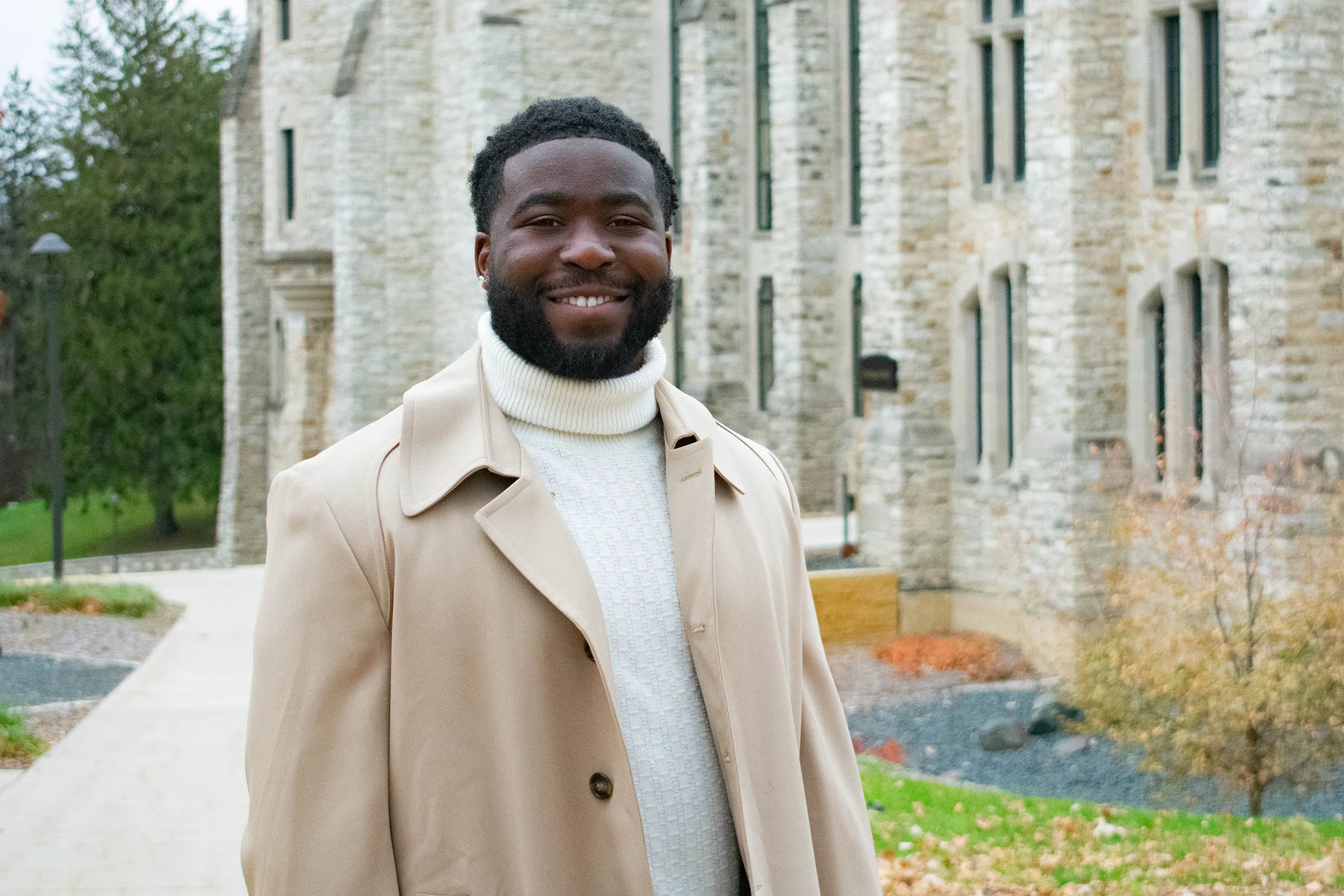
Bogne, a computer science major, will use the fellowship for a project titled “Students Before Athletes.” This project will focus on building a foundation for students in marginalized public schools with the goal of improving attendance, participation, and good behavior in these schools.
“My goal is to develop a desire to be successful in school for these young kids,” Bogne says. “We live in a society that glorifies unethical and unreliable methods to attain wealth. I want to change that view and help the youth realize that education is the best investment that someone can put towards themselves.”
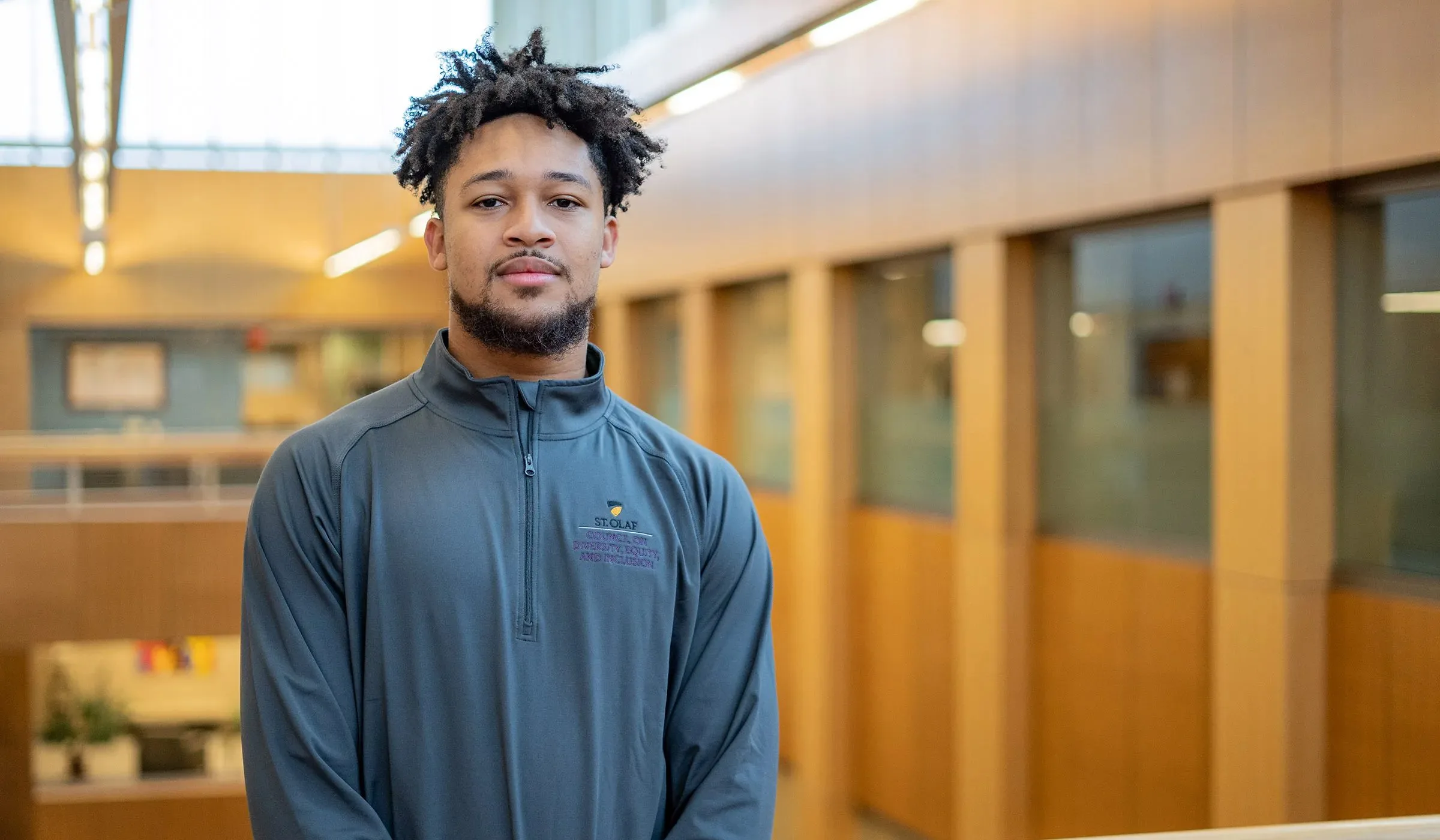
Lloyd, a film and media studies major, plans to use the fellowship to help change the perception of marginalized people. Through his internship with the CBS Race and Culture Unit, Lloyd hopes to create content about athletes of color and give voice to their perspectives and experiences. Lloyd wants to revolutionize thought and conversations surrounding American athletics and bring the current model of sports culture in America to question.
“I am actively working against stereotypes surrounding the Black community and more specifically Black and BIPOC athletes,” he says.
A founding member of Oles Against Inequality (OAI), Lloyd was instrumental in the creation of a pop-up barbershop on campus that provided hair care for BIPOC students who otherwise wouldn’t have had access to it in rural Minnesota. The creation of the barbershop led to attention from CBS and the inclusion of Lloyd in the CBS documentary CROWN.
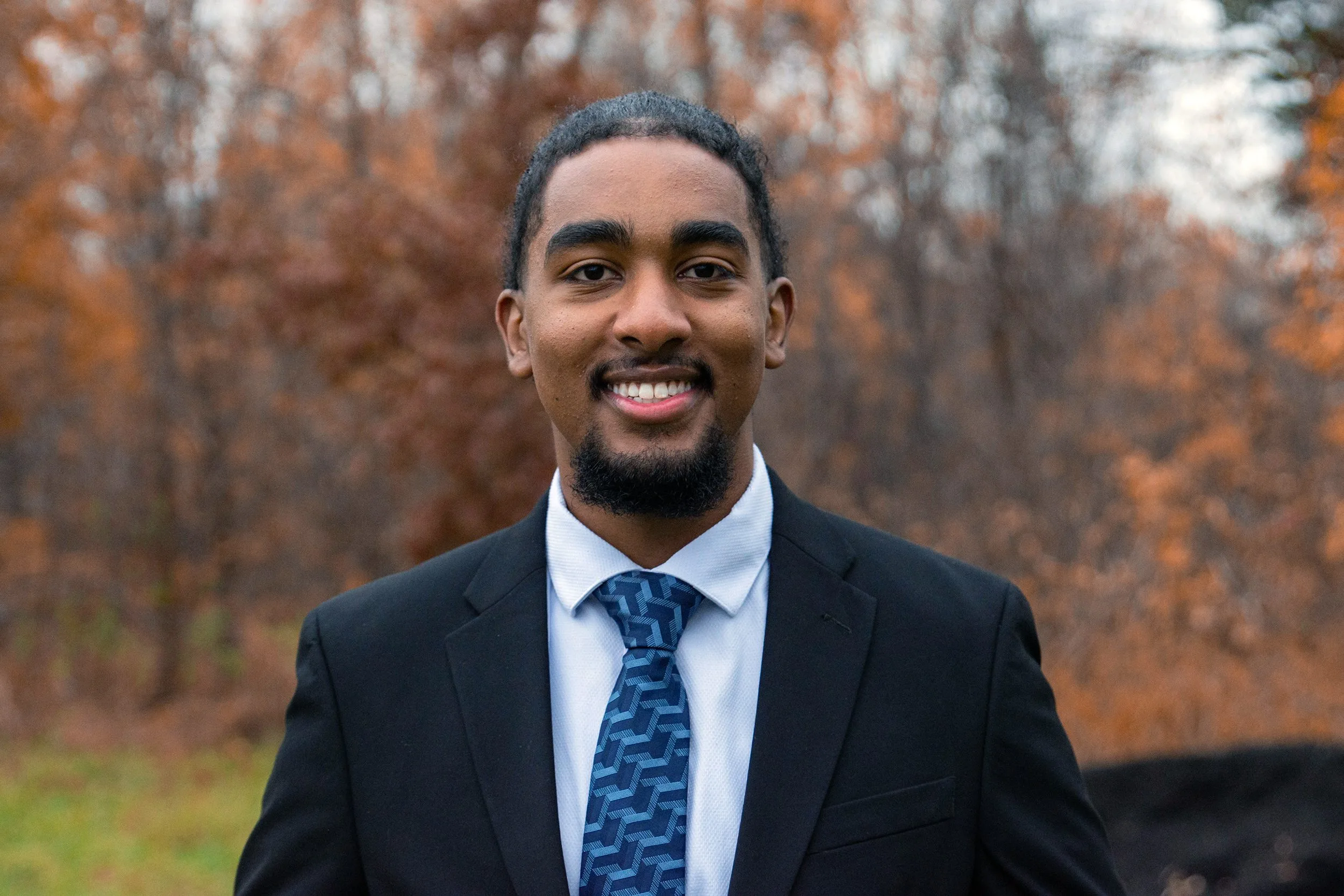
Nour will use the fellowship to create a project called Black Youth’s Day at the Capitol. Nour, a political science major, wants to get youth in the Black community more engaged in their state legislature and help them gain understanding of the institutions that govern them. He wants youth to understand that there is a path to speaking directly to your state representatives and there are ways to make change.
“This project will allow students to bring up topics and speak to their representatives about issues they find pressing within their own communities, to further tackle racial justice, social justice, and equity through policy-making,” Nour says.
Nour credits a visit to the Minnesota State Capitol for making him want to pursue this topic. He said that he didn’t know people could just speak to their representatives — and after realizing that it was possible, he knew he needed to create greater awareness about how people can engage with government officials.
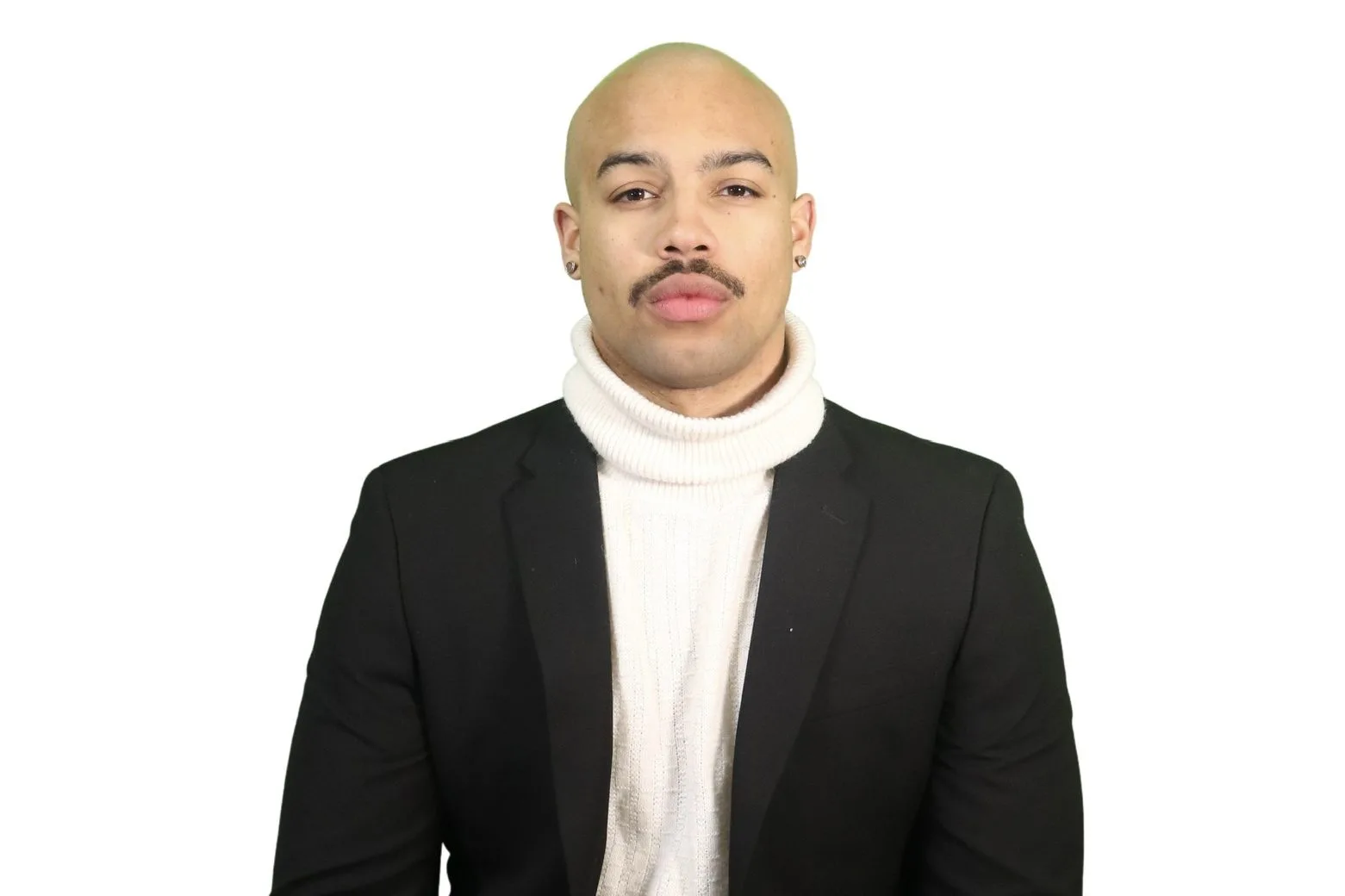
Riley-Combs, a double major in psychology and race and ethnic studies with a concentration in film and media studies, is focusing on supporting individuals (specifically youth) who have experienced trauma, low-income living, and are in need of mental support and guidance. His project is called “Concrete Roses — Empowering Growth through Adversity.”
Through his project, Riley-Combs wants to investigate the relationship between adverse childhood experiences, intergenerational trauma, psychopathology, coping mechanisms, emotional regulation, and resilience, as well as the most effective strategies for coping.
“My mission is to help underprivileged youth break the ‘generational curse’ and inspire new forms of storytelling, art, and media that reflect a more nuanced understanding of mental health and trauma, and create more inclusive and empowering representations of these experiences,” he says.
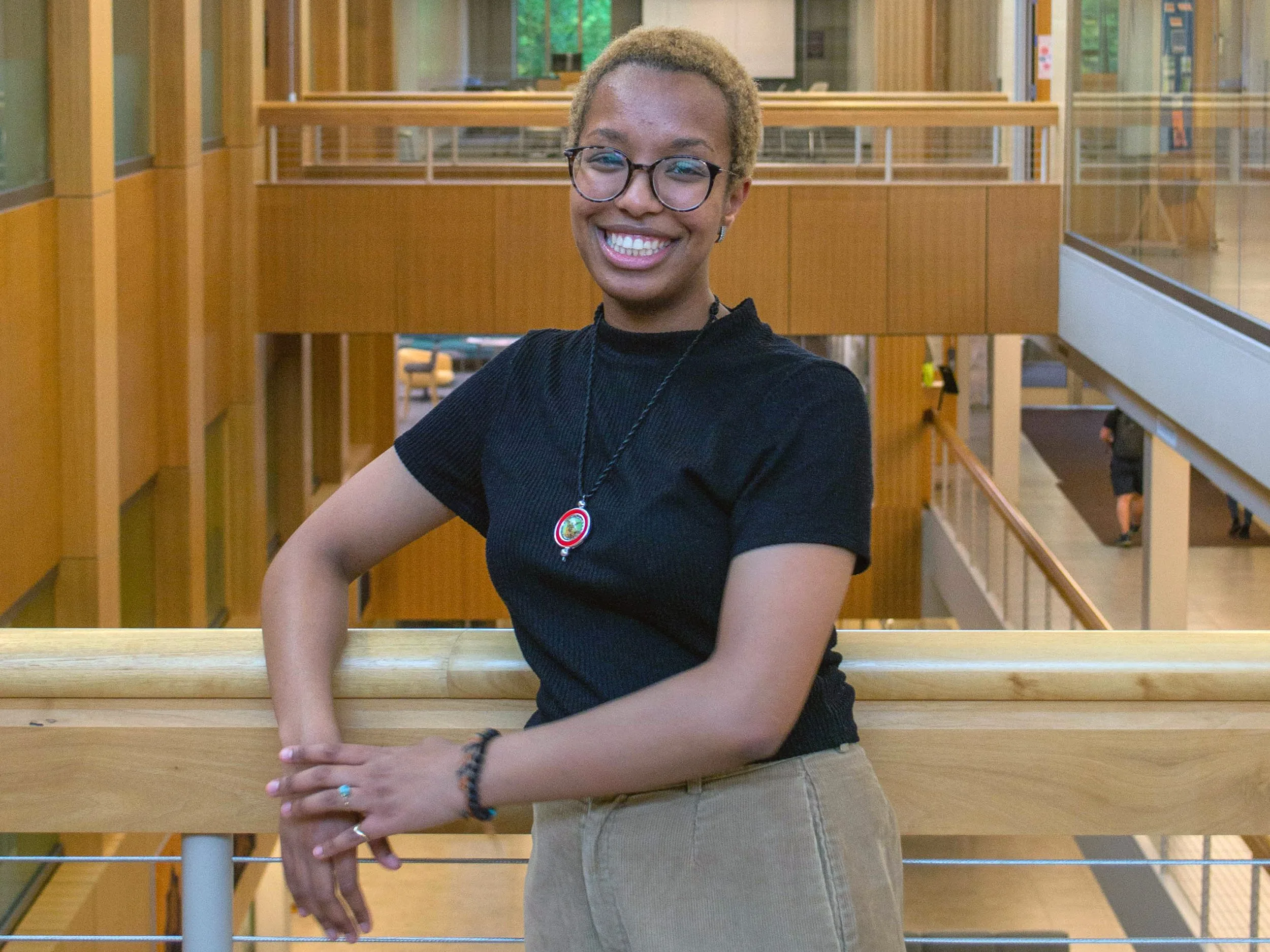
Solomon, a political science and environmental studies major, is spending a second year as a George Floyd Fellow. In her first year as a fellow, her project focused on the role that Black artists and writers play in environmental advocacy. The goal of her project, titled “Let Us Reap What We Sow,” was to facilitate an open dialogue on environmental racism through conversation, art, and poetry. This year Solomon plans to use her fellowship to look deeper into the power of art as a means of social and political engagement. Her project is called “Canvas of the African Diaspora: Artivism in D.C.’s Museums.”
“Tapping into my activism through my artwork will encourage a connection with the African diaspora, engagement strategies, and how art influences political movements,” Solomon says.
This fellowship will allow Solomon to explore the ties between art and politics in Washington, D.C., which is home to some of the most notable African American museums in the United States — and is a place where Solomon can see herself working in the future.
“Art has historically played a significant role in giving marginalized communities a platform to voice their concerns and advocate for change,” she says.
In June of 2020 St. Olaf committed $100,000 to establish the George Floyd Fellowship for Social Change, and donors provided a matching endowment. Combined with support from the Johnson Family Opportunity Fund, the Taylor Center named four fellows in its inaugural year, one in 2021-22, and three in 2022-23. The past George Floyd Fellows are:
The George Floyd Fellowship is coordinated by the Taylor Center for Equity and Inclusion, which aims to foster an inclusive environment across the intersections of race and identity that students bring to St. Olaf.


